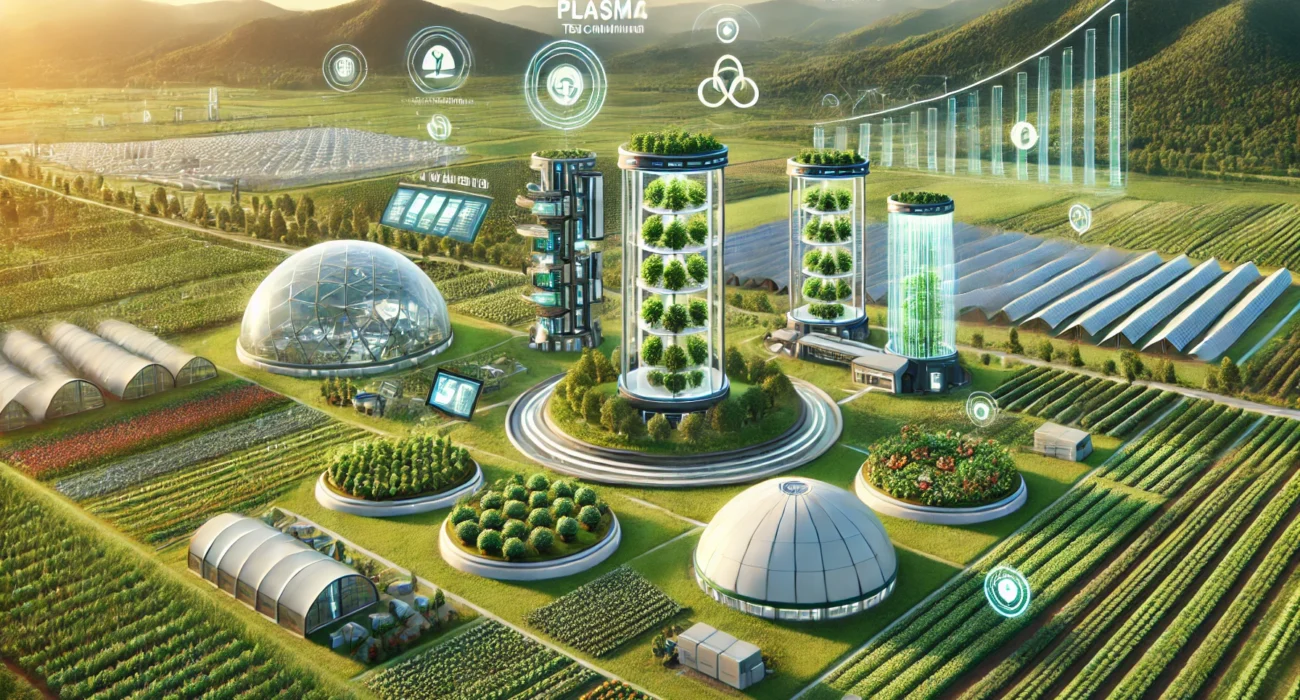Innovative Agricultural Solutions for a Sustainable Tomorrow
At DEDAIS, we are committed to revolutionizing agriculture through innovative and sustainable practices. The farm of the future is a concept that integrates advanced technologies, sustainable farming methods, and data-driven insights to create efficient, resilient, and environmentally friendly agricultural systems. This article explores the key elements of building the farm of the future and highlights the transformative impact of these innovations on agriculture.
The Need for Innovation in Agriculture
With the global population expected to reach 9.7 billion by 2050, the demand for food is increasing rapidly. Traditional farming methods are often insufficient to meet this growing demand sustainably. Challenges such as climate change, soil degradation, water scarcity, and the loss of biodiversity further complicate the situation. Innovative agricultural solutions are essential to address these challenges and ensure food security for future generations.
Key Elements of the Farm of the Future
1. Precision Agriculture
Precision agriculture uses data and technology to optimize field-level management regarding crop farming. By employing sensors, GPS mapping, and data analytics, farmers can monitor crop health, soil conditions, and weather patterns in real time. This enables precise application of water, fertilizers, and pesticides, reducing waste and improving crop yields.
2. Sustainable Farming Practices
Adopting sustainable farming practices is crucial for long-term agricultural success. This includes crop rotation, organic farming, conservation tillage, and integrated pest management. These practices help maintain soil health, reduce environmental impact, and promote biodiversity.
3. Automation and Robotics
Automation and robotics are transforming the agricultural industry by increasing efficiency and reducing labor costs. Autonomous tractors, drones, and robotic harvesters can perform tasks such as planting, irrigation, and harvesting with high precision and speed. This technology not only improves productivity but also reduces the physical strain on farmers.
4. Vertical Farming
Vertical farming involves growing crops in vertically stacked layers, often in controlled indoor environments. This method maximizes space utilization and allows for year-round production, regardless of external weather conditions. Vertical farms use hydroponics or aeroponics systems, which require significantly less water and land than traditional farming.
5. Smart Irrigation Systems
Smart irrigation systems use sensors and IoT technology to monitor soil moisture levels and weather conditions, ensuring that crops receive the optimal amount of water. These systems can reduce water usage by up to 50% compared to conventional irrigation methods, making them essential for sustainable water management in agriculture.
6. Genetic Engineering and Biotechnology
Advances in genetic engineering and biotechnology are enabling the development of crops that are more resistant to pests, diseases, and environmental stresses. These innovations can improve crop yields, reduce the need for chemical inputs, and enhance the nutritional value of food.
7. Soil Enrichment Technologies
We leverage advanced plasma technologies and vibration technologies to enrich the soil. These innovative methods inform and enhance the matter within the soil, leading to improved fertility and better crop production. These technologies help to restore and maintain soil health, ensuring sustainable agricultural practices.
8. Water Quality Improvement
Improving water quality is essential for healthy crop production. Our technologies focus on enhancing and informing water through advanced purification and structuring methods. This ensures that plants receive the best quality water, which is crucial for their growth and development.
9. Advanced Electroculture
Electroculture involves using electrical fields to stimulate plant growth. Our advanced and enhanced electroculture techniques significantly improve the quality, quantity, and size of agricultural production. This innovative approach helps in maximizing yields and enhancing the nutritional value of crops.
10. Research on Rational and Augmented Permaculture
We are actively involved in research on rational agriculture and augmented permaculture. Rational agriculture focuses on efficient and sustainable farming practices that minimize inputs while maximizing outputs. Augmented permaculture integrates traditional permaculture principles with advanced technologies to create resilient and self-sustaining agricultural systems.
The Transformative Impact of Innovative Agriculture
Innovative agricultural practices have the potential to transform the industry and create a more sustainable future. Here are some of the key benefits:
– Increased Productivity: By leveraging technology and data, farmers can achieve higher crop yields and more efficient resource use.
– Improved Quality: By using new technologies we improve the quality of the farm production.
– Environmental Sustainability: Sustainable farming practices and smart technologies reduce the environmental impact of agriculture, conserving natural resources and promoting biodiversity.
– Economic Growth: Innovation in agriculture can create new business opportunities, increase farm profitability, and contribute to rural development.
– Food Security: Advanced agricultural practices ensure a stable and sufficient food supply to meet the needs of a growing global population.
Conclusion
Building the farm of the future is essential to addressing the challenges facing modern agriculture and ensuring a sustainable and secure food supply. At DEDAIS, we are dedicated to supporting the development and implementation of innovative agricultural solutions that promote efficiency, sustainability, and resilience. By embracing these advancements, we can create a more sustainable and prosperous future for agriculture.


